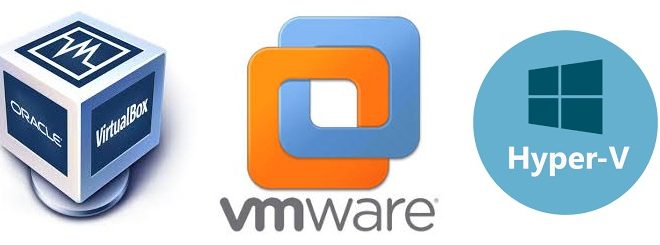VirtualBox vs. VMWare vs. Hyper-V: What’s the Best Virtual Machine?

As the world becomes increasingly reliant on virtual machines, the need for reliable virtualization technology has become a necessity. Among the various virtualization software, VirtualBox, VMWare, and Hyper-V are three of the most popular applications. All three offer distinct features and capabilities, but which one is the best virtual machine? In this article, we will compare the various aspects of VirtualBox, VMWare, and Hyper-V to determine which one is the ideal solution for virtualizing systems.
Installation and Configuration:
Installation and setup of the software are crucial considerations for both novice and seasoned users. VirtualBox is easy to install and configure and provides a simple user interface, making it a preferred choice for beginners. VMWare, on the other hand, has many settings and options for a more advanced setup, making it an ideal choice for experienced users. Finally, Hyper-V is embedded with
Windows and requires activation from the Windows feature setting to start the virtualization process.
Operating System Compatibility:
Another crucial consideration when choosing virtualization software is operating system compatibility. Each of the three virtual machines has varying levels of compatibility, and choosing the right one will depend on the intended use. VMWare is known for being highly compatible with a wide range of operating systems, while VirtualBox offers extensive support for UNIX and Linux. Hyper-V is exclusive to the Windows platform and offers best compatibility with Windows operating systems.
Performance:
Performance is another critical consideration when choosing a virtual machine as it directly impacts the virtualization experience. VMWare offers superior performance, but at a price, as it demands a high level of hardware resources. VirtualBox’s performance is good and adequately meets the standard virtualization requirements. Hyper-V balances performance and reduced costs well, as it operates as a native feature in Windows Operating Systems.
Features and Functionality:
The features and functionality of these virtualization software vary, and choosing the most suitable one will depend on specific needs. VMWare offers advanced features such as the ability to run multiple virtual machines simultaneously, network isolation, virtual hard disk encryption, and support for high-end graphics. VirtualBox, on the other hand, provides enough functionality for standard virtual machine usage, including snapshot and cloning of virtual machines, remote display, and support for USB devices. Hyper-V offers virtual network functionality, cloud computing capabilities, and live migration, enabling seamless transition and mobility across virtual machines.
Cost:
Cost is an undeniable factor when choosing any software, and virtual machines are no exception. VMWare is the most expensive of the three, with its extensive features and functionality commanding a hefty price tag. VirtualBox is a cost-effective solution, making it more accessible to users who need to run a virtual machine without spending too much. Hyper-V is an excellent choice for businesses that want to virtualize systems on a budget, as it comes free with Windows.
Conclusion:
Choosing the most suitable virtual machine depends on a variety of factors, as discussed. Each platform has its strengths and weaknesses, and selecting the most appropriate one depends on the specific use case. If the goal is to create virtual machines on a Windows operating system, then Hyper-V would be the best option. For high-end graphics and flexibility, VMWare is the go-to choice. For standalone machines and cost-effectiveness, VirtualBox is the ideal solution. Ultimately, the most significant consideration when choosing a virtual machine is identifying the specific requirements and selecting the platform that best suits those needs.





